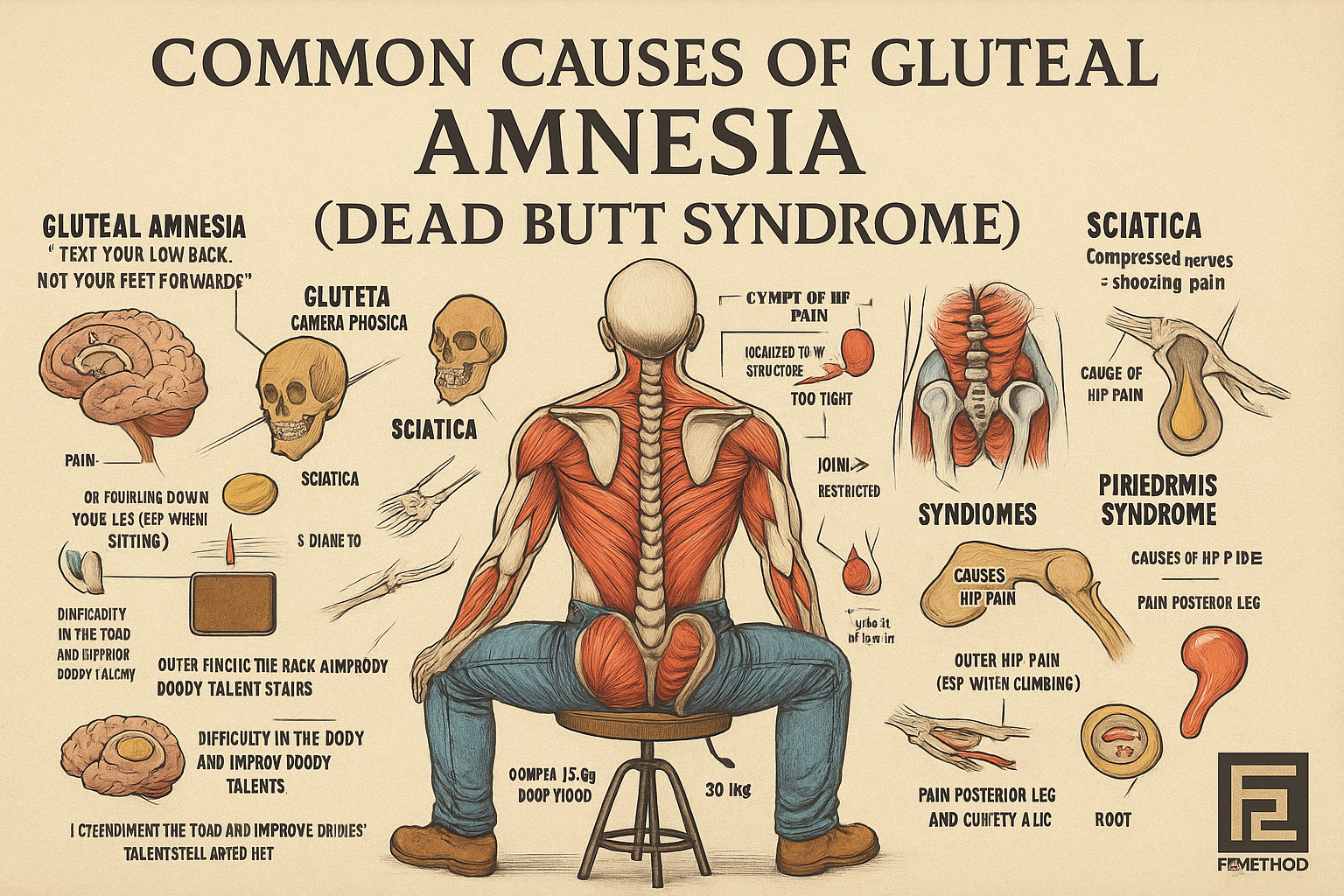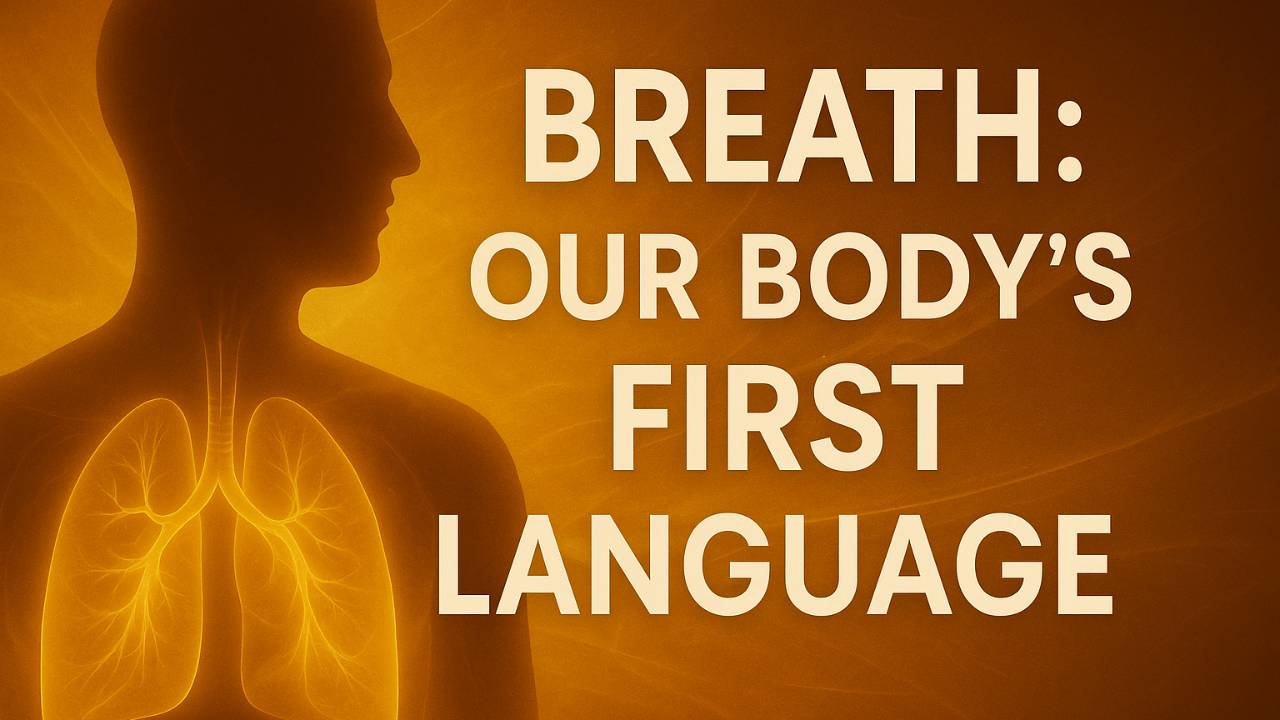Got Gluteal Amnesia?

Gluteal Amnesia: Why Your Body Forgets Its Strongest Muscle (and How to Wake It Back Up)
The Forgotten Powerhouse
The glutes are the largest, strongest muscles in the body. They’re designed to stabilize the pelvis, drive hip extension, and act as a central hub for posture, locomotion, and power. And yet, in modern life, many people are walking around with what’s often called “gluteal amnesia” a condition where the brain–body connection to the glutes has gone offline.
It’s not that the muscle is weak. It’s that the neurological wiring has been dulled. The body has “forgotten” how to use them efficiently.
Common Causes of Gluteal Amnesia
- Prolonged Sitting: Hours in a chair compress the hip flexors and turn off the glutes.
- Poor Posture: Anterior pelvic tilt, rounded spine, and collapsed diaphragm weaken the fascial connections to the posterior chain.
- Injury Compensation: Pain in the lower back, knees, or hips often causes the body to bypass the glutes, shifting load els ...
FASCIAL HYDRATION
Breathing Water Into the Web: How Diaphragmatic Breath Hydrates Your Fascia
The Forgotten Water System of the Body
We’ve been taught to think about hydration as something that comes only from the glass of water in your hand. But hydration is not just about drinking, it’s about distribution. And one of the most overlooked distribution networks in the human body is fascia, the connective tissue web that wraps, weaves, and links every organ, muscle, and nerve into one living, moving whole.
Fascia isn’t just structural scaffolding, it’s fluid, responsive, and highly sensitive. Scientists describe it as a “liquid crystalline matrix,” capable of storing, transmitting, and conducting force and information. And like any living matrix, fascia must remain hydrated to function.
Here’s the revelation: hydration in fascia isn’t only about water intake, it’s about mechanical stimulation and breath.
Breath as a Pump for the Fascial Web
Every diaphragmatic breath is a hyd...
Breath the Bodies 1st language

Breath: Our Body’s First Language
Before Words, There Was Breath
Long before we learned to talk, write, or even think in structured sentences, our body had a language. That language was not verbal, it was biological, primal, and universal. The very first thing we did when we arrived on this planet was inhale. That inhale wasn’t just survival, it was communication. Breath told the body, “We are alive.”
Breath is our body’s first language, and unlike spoken words, it is a language that every cell understands.
Breath Speaks to Every System
Each inhale and exhale is a message, not just to the lungs, but to the nervous system, the heart, the fascia, and even down to the mitochondria powering each cell.
-
To the brain: Breath says “calm” or “panic” depending on rhythm. Slow nasal breathing activates the vagus nerve, shifting us into parasympathetic rest. Shallow chest breathing screams danger, keeping the amygdala on high alert.
-
To the heart: Breath regulates rhythm. Inhalat
...

